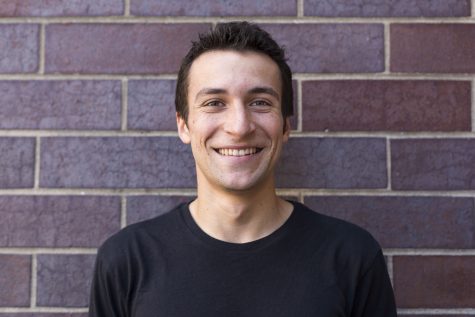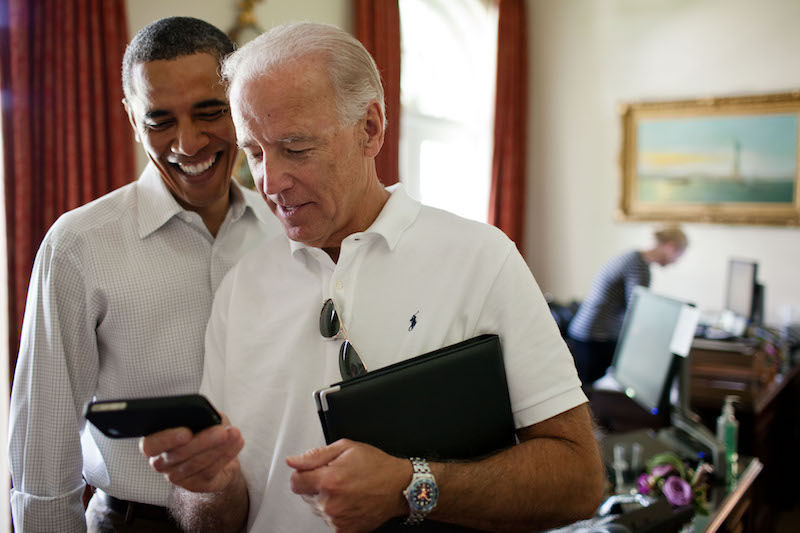The Digital Presidency
The Obama Administration got the first crack at capitalizing on the emerging social media landscape.
People will debate President Barack Obama’s legacy for years, but there’s no questioning this: he will go down in the history books as the first president to tweet.
Coming of age in the era of social media, the president, with just a couple months left in office, has certainly seared himself into the minds of millennials — in part due to the fact that they could follow his every move on social media.
It’s a changing landscape in how we consume our news and interact with the most famous of celebrities, and as a result, President Obama has become a sort of pop culture celebrity among young people, his digital presence on par with Twitter’s biggest stars. (His 78.5 million Twitter followers make him the fourth most popular account — behind Katy Perry, Justin Bieber and Taylor Swift.)
His perceived digital success is no accident. Understanding the need to capitalize on the newest means of conversation, the president assembled a digital team that carefully crafts his voice on social platforms. It signals a shift away from more conventional — and perhaps more antiquated — means of communicating with the American public, and a recognition that media literacy is crucial for a president who wants to energize citizens.
“Our mission is to meet people where they are — and that also means delivering digital content in a way that’s consistent with what people expect to see when they get there,” said Kori Schulman, the Deputy Chief Digital Officer in the White House.
And meet people they have. Last year, Obama announced his proposal for free community college in a Vine. The @POTUS Twitter account consistently churns out 140-character updates on the state of the union. And just last week, the president appeared on the Snapchat political talk show “Good Luck America” to talk about Hillary Clinton’s campaign.
Stephen Duncombe, a professor of media and culture at NYU who studies the history of presidents’ use of mass communication, says he sees President Obama’s use of today’s social platforms to be no different from any other president taking advantage of the media of their day. For example, Abraham Lincoln was a master orator; Franklin Delano Roosevelt used radio to step into people’s homes; John F. Kennedy knew the power of image on television.
The difference, Duncombe says, is that he doesn’t believe that President Obama is the social pioneer that he is perceived to be.
“He’s an incredibly skilled comic president, but I don’t think he ever figured out how to use social media in the way your average 16-year-old or 18-year-old probably has the skills to do,” Duncombe said.
So maybe he hasn’t yet mastered the art of the tweet. But there’s no questioning that his presence on social media is resonating with users. And the increased social accessibility of the president is not just an entertaining outgrowth of an administration trying to draw a few smiles; it has proven to play an important role in engaging younger voters.
The redefining of the presidency comes at a crucial time, as people grapple with how much of their lives should be broadcasted to the world. Similarly, the last 18 months of the election have proven just how pivotal a single post can be in driving the conversation, at least for a few hours.
The digital legacy that President Obama leaves behind is enough that last week, the White House published a detailed plan as to how the social media transition in January will take place. And it’s something that Donald Trump will need to capitalize on when he gets the passwords to the social media accounts, said George Bennett, the Head of Digital Strategy at the advertising agency Droga5 (which has worked with both Hillary Clinton and President Obama on crafting digital marketing campaigns).
“If the Obama administration showed the political world how to speak on social media with a singular voice, the next president will have an opportunity to elevate the voices of the many people within their administration, empowering them to engage more directly with constituents on social platforms,” Bennett said.
It will be a strange sight to see how Trump handles his social media presence following his victory on Tuesday. Throughout the presidential campaign, he was known for his outlandish tweets which he crafted and posted himself, a departure from any other mainstream candidate (then again, Trump was not a normal candidate by any means).
“The fact is [Donald Trump] does know how to use social media,” Duncombe said. “The problem is he only knows how to use it in such a way as to amplify his own personal ideas and personal thoughts.”
But even if his usage sets him apart, there’s no disputing that social media — spouting ideas that will generate conversation and clicks — is Trump’s forte. If the reality TV star’s social media presence makes him seems more relatable in any way, it’s probably not to the mainstream social media user; rather, he resembles more of your crazy uncle ranting on Facebook. Even still, entertainment sells.
President Obama, on the other hand, was able to humanize himself well and often on social media, whether through a video of him dancing to “Thriller” by Michael Jackson or a selfie on Instagram from a vacation. A victory tweet following the 2012 election which featured President Obama and Michelle Obama racked up more than 800,000 retweets.
Social media can pose problems for politicians trying to advance agendas through it, though. Online, there is no captive audience waiting to hear the full speech — users want the quick soundbite or clip that will sum everything up. Attention spans are shorter than ever, and as a result, policies can sometimes get watered down to 140 characters to ensure that people don’t get bored and click away.
“Policy is complex and tweets are short,” Duncombe said. “There’s a sort of interface problem between the complexity of policy and the simplicity of social media. And also between the sort of rationality which is necessary to understand policy and the emotional charge and emotional character of most social media.”
But Bennett sees it differently.
“Any political actor who believes that they are debasing their message by employing the communications methods embraced by their constituents is living in the past.”
A version of this article appeared in the WSN 2016 Election Issue. Email Alex Bazeley at [email protected].

Alex Bazeley is the Editor-in-Chief for the Washington Square News. Hailing from Oakland, he is a junior studying journalism and metropolitan studies....






















































































































































